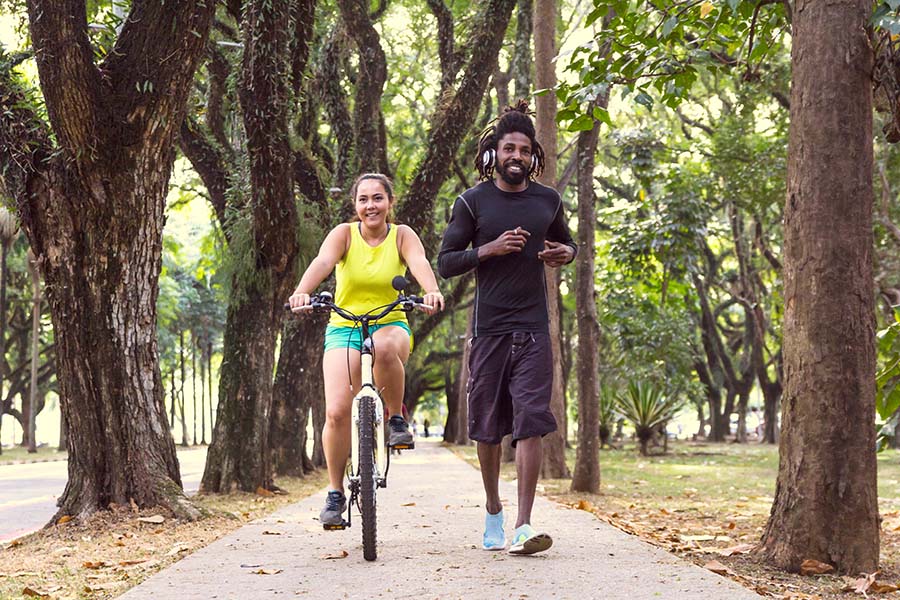Summertime is the perfect time to go outside and have fun. There are so many outdoor activities to choose from, whether you’re swimming, running, or riding your bike. The issue with summer is the increase in temperature, which can be a problem if you’re not careful, especially if you’re living in or visiting areas with extreme heat and humidity. One of the biggest problems people have with being active in the summer hear is staying well-hydrated and maintaining their body’s electrolytes and salt levels. You need to remember that when you sweat, your body loses not only water but also lose electrolytes and salt. Maintaining this crucial balance of water and electrolytes helps keep your body functioning properly.
One way to know that you’re not drinking enough water is you’ll generally suffer from light-headedness and nausea. If you don’t recognize that you are dehydrated, it can even result in kidney failure and or, in some extreme cases, death. While drinking water can help prevent this, if you drink a lot of it without replenishing your electrolytes, you can experience hyponatremia, when your blood doesn’t have a high enough level of sodium. This can lead to confusion, nausea, muscle cramps, and seizures. In some extreme cases, it can even result in death. Of course, this isn’t meant to freak you out, just to inform you of what could happen when you neglect your health. Here are some tips to help you stay safe while exercising outside this summer:
- Unless you are training for a marathon that is going to take place in the daytime heat, you should avoid exercising from 10 a.m. to 3 p.m., which is considered to be the hottest part of the day. Usually, the best time to work out is in the early morning, especially if you know it’s going to be extremely hot that day.
- Try to avoid wearing anything dark. A lighter color will help reflect heat, and a light fabric, like cotton, will help you with the evaporation of sweat. There are plenty of specially designed running shirts and shorts made out of material that is meant to keep you cool that you can buy.
- SPF of at least 45 is best to use in the sun, just to be safe. It’s important to protect your skin, especially since you can even get burned on cloudy days. It can also cause sun damage to your skin.
- Staying hydrated is especially important when you are out in the sun. Drink water before you head out and carry a bottle of water or hydration pack with you and take a drink every 15 minutes.
- When you are out in the sun, you are not only losing water, you are losing sodium, which is needed in your blood to help maintain proper body function.


